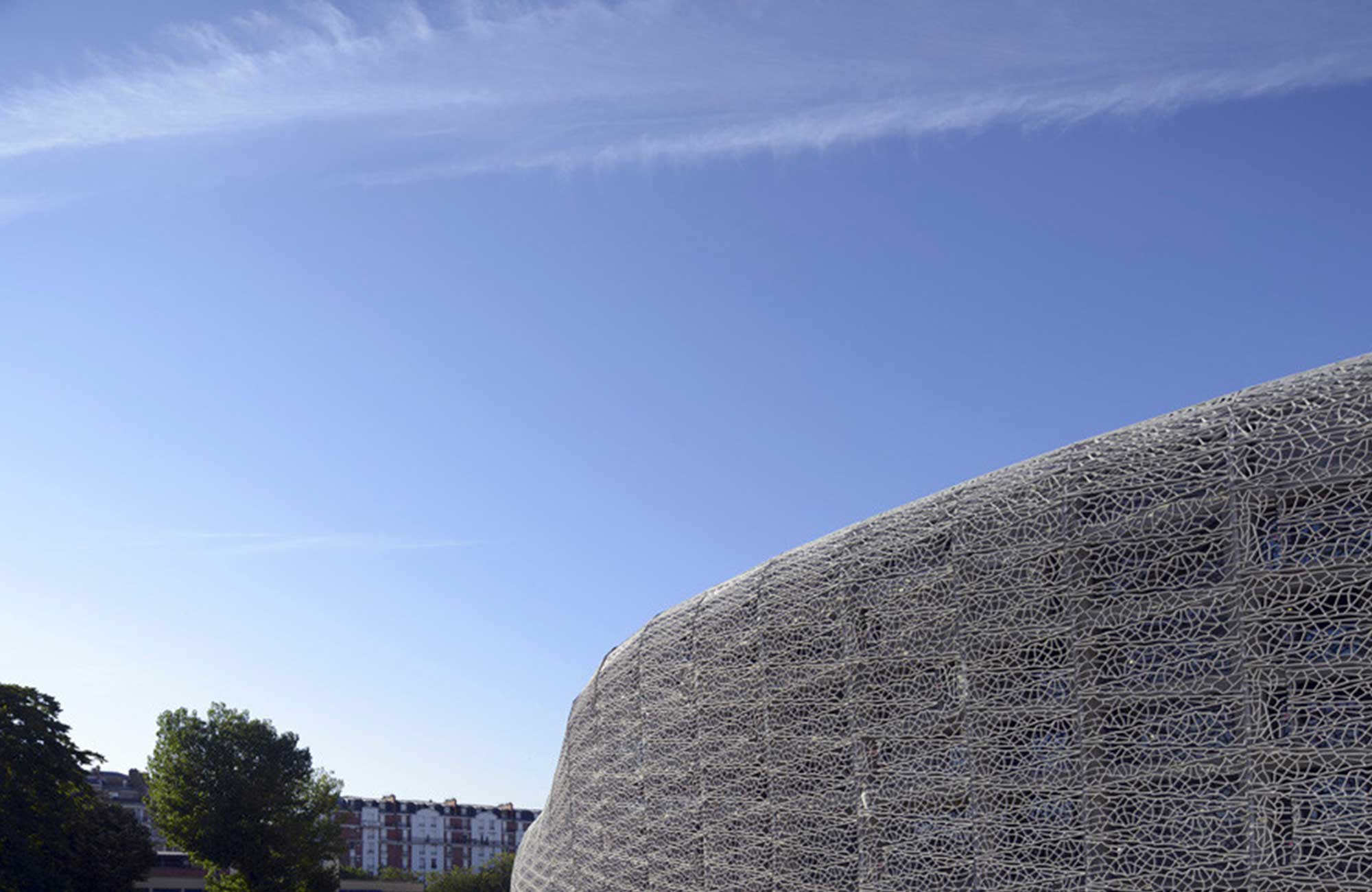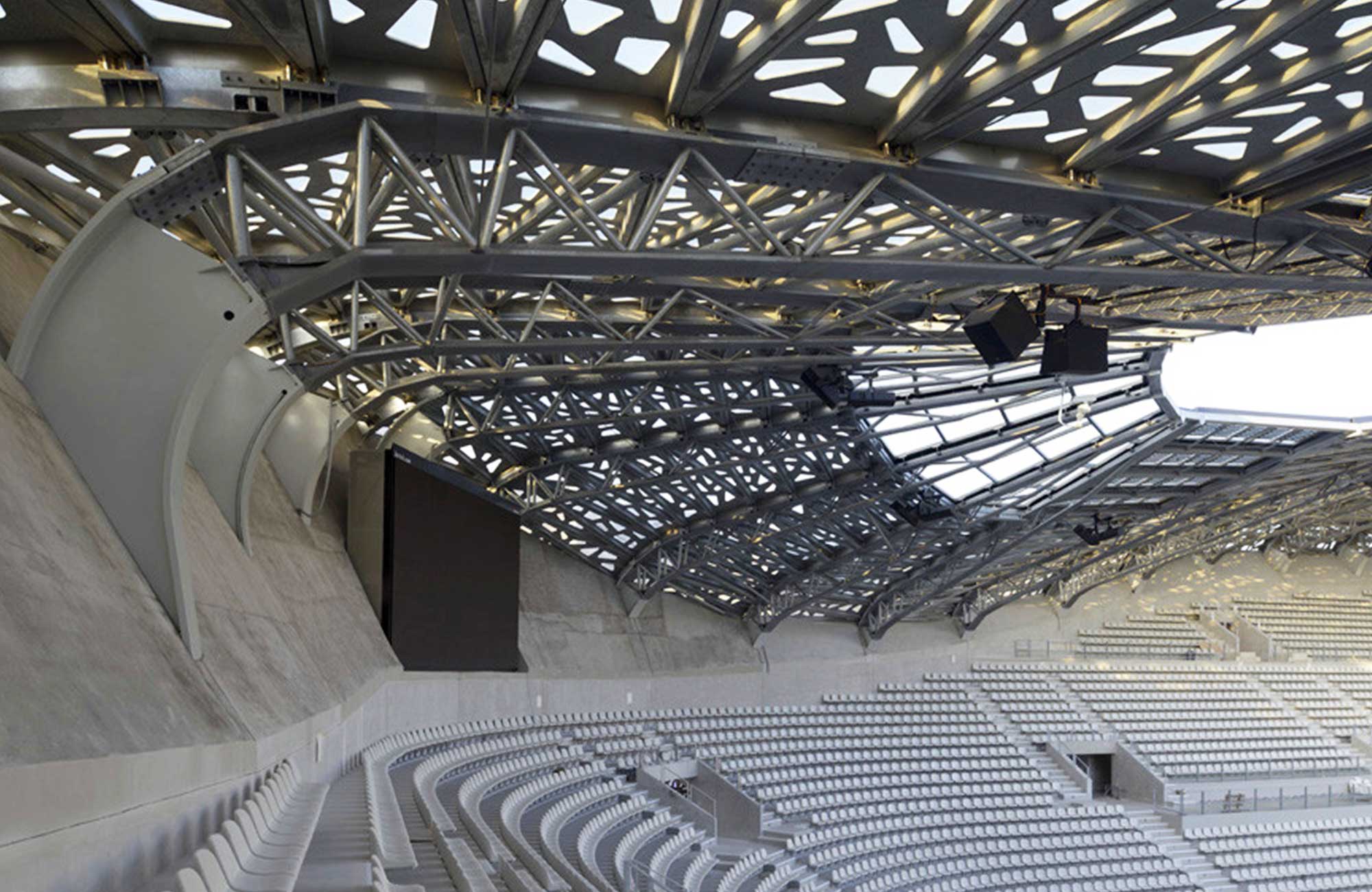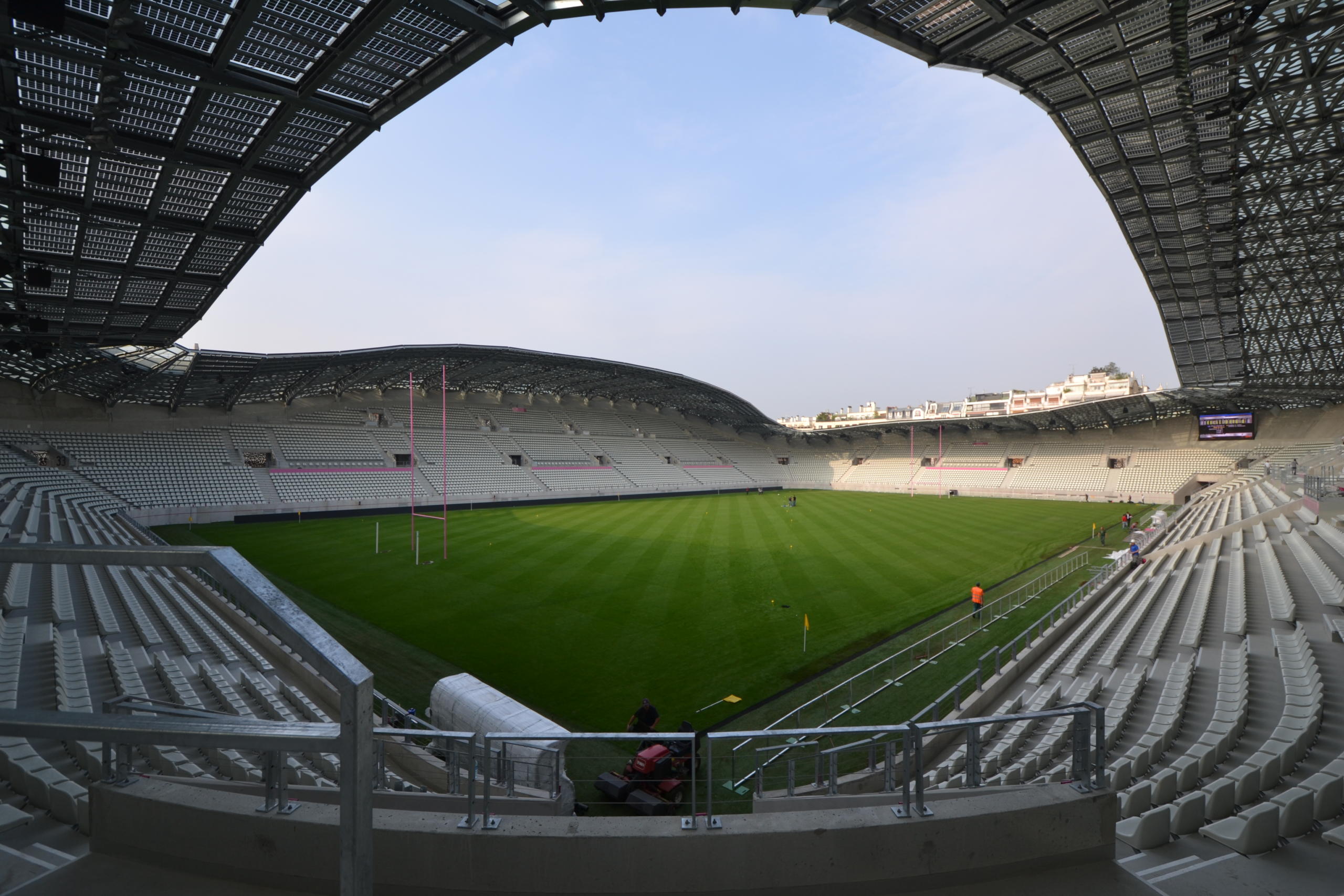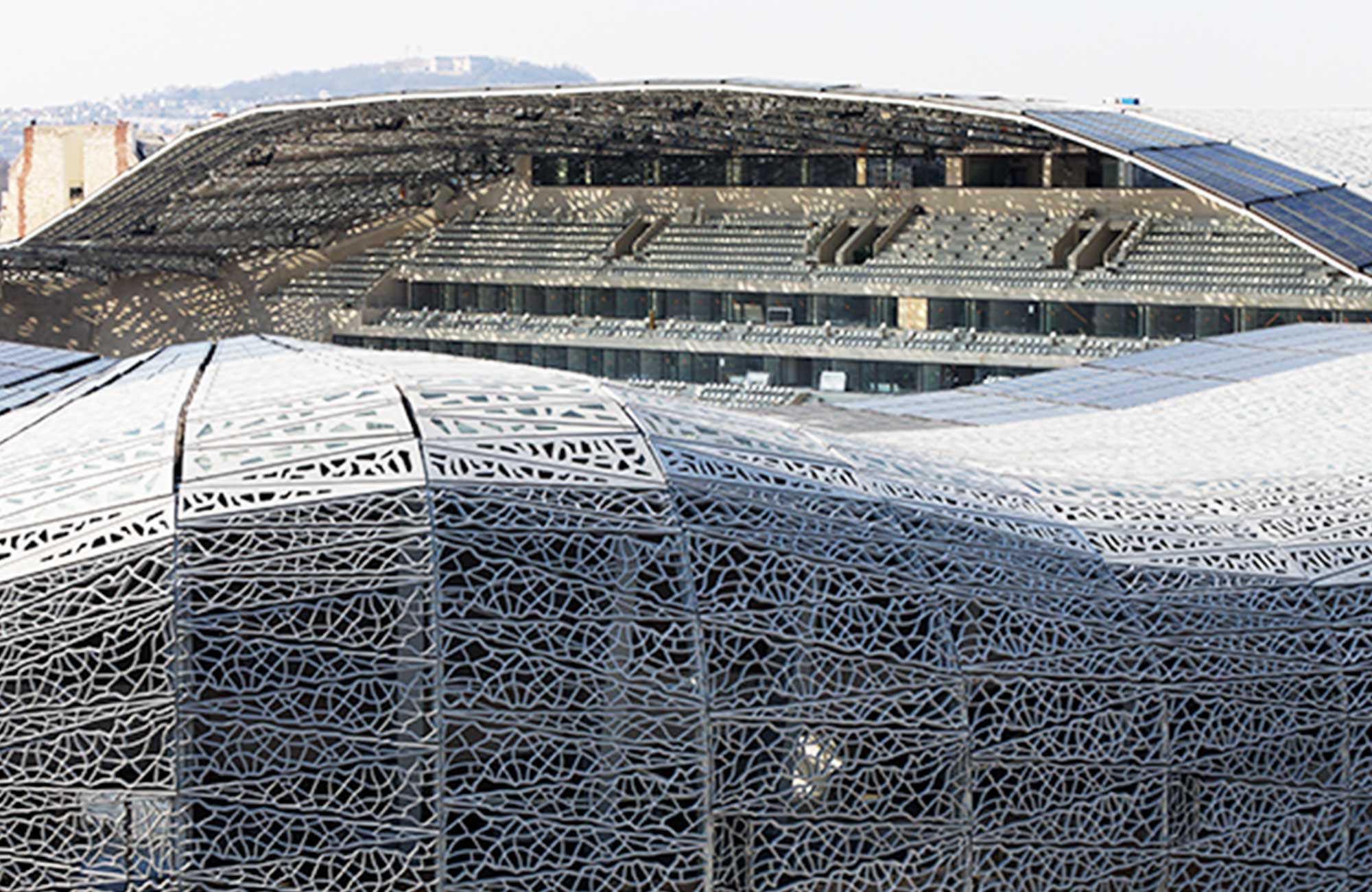If you are a sports enthusiast in Paris, you have likely heard of the Stade Jean Bouin. But what exactly is this stadium, and why is it so important?
In this comprehensive guide, we will take an in-depth look at the Stade Jean Bouin, exploring its history, design, facilities, and major events. We will also provide insights into its significance for the city of Paris and the wider sporting community.
Stade Jean Bouin is a multipurpose stadium located in the 16th arrondissement of Paris, France. It was built in 1925 and has a capacity of 20,000 spectators. The stadium is used for a variety of sports, including rugby, soccer, and athletics.

Stade Jean Bouin à Paris - Cetis - Source bet-cetis.com
The stadium is named after Jean Bouin, a French middle-distance runner who won the gold medal in the 5,000 meters at the 1912 Summer Olympics. Bouin was killed in action during World War I, and the stadium was built in his memory.
Stade Jean Bouin has hosted a number of major sporting events, including the 1924 Summer Olympics, the 1938 FIFA World Cup, and the 2003 Rugby World Cup. The stadium is also home to the Paris Saint-Germain rugby team and the Stade Francais rugby team.
In addition to its sporting significance, Stade Jean Bouin is also a popular venue for concerts and other events. The stadium has hosted performances by artists such as the Rolling Stones, U2, and Beyoncé.
Stade Jean Bouin is a landmark in the city of Paris and a major sporting venue. The stadium has a rich history and has hosted a number of major sporting events. It is also a popular venue for concerts and other events.
FAQ
Stade Jean Bouin is a multipurpose stadium located in the 16th arrondissement of Paris, France. It is primarily used for rugby union and association football matches. The stadium has a capacity of 20,000.

Jean Bouin stadium by Trust In Design - Architizer - Source architizer.com
Question 1: What is the capacity of Stade Jean Bouin?
The capacity of Stade Jean Bouin is 20,000.
Question 2: What sports are played at Stade Jean Bouin?
Stade Jean Bouin is primarily used for rugby union and association football matches.
Question 3: Where is Stade Jean Bouin located?
Stade Jean Bouin is located in the 16th arrondissement of Paris, France.
Question 4: When was Stade Jean Bouin built?
Stade Jean Bouin was built in 1925.
Question 5: How big is the playing field at Stade Jean Bouin?
The playing field at Stade Jean Bouin is 105 meters long and 68 meters wide.
Question 6: What teams play at Stade Jean Bouin?
The Stade Francais Paris rugby team and the Paris Saint-Germain Football Club women's team play at Stade Jean Bouin.
Stade Jean Bouin is a modern and well-equipped stadium that has hosted numerous major sporting events. It is a popular venue for both rugby and football matches.
Tips
Stade Jean Bouin: An In-Depth Look At Paris's Multipurpose Stadium contains detailed information about the stadium, its history, and its current uses. Before visiting Stade Jean Bouin, consider the following tips for a memorable experience:
Tip 1: Plan your visit in advance.
Check the stadium's website for upcoming events and ticket availability. Purchasing tickets online in advance can save time and ensure you get the best seats.
Tip 2: Arrive early.
Allow plenty of time to get to the stadium, especially if you are driving. Parking can be limited, so consider taking public transportation or arriving early to secure a spot.
Tip 3: Dress appropriately.
The stadium is outdoors, so dress accordingly for the weather conditions. Wear comfortable shoes as you may be doing a lot of walking.
Tip 4: Bring essentials.
Pack essential items such as sunscreen, sunglasses, a hat, and a small bag to carry your belongings. Food and drinks are available for purchase at the stadium, but you may want to bring small snacks.
Tip 5: Be mindful of stadium regulations.
Familiarize yourself with the stadium's rules and regulations, such as prohibited items and appropriate behavior. This information is typically available on the stadium's website.
Summary of key takeaways or benefits:
By following these tips, you can ensure a smooth and enjoyable visit to Stade Jean Bouin. Remember to plan ahead, arrive early, dress appropriately, bring essentials, and be mindful of stadium regulations.
Transition to the article's conclusion:
With its rich history, versatile facilities, and convenient location, Stade Jean Bouin offers a unique and unforgettable experience for sports enthusiasts, concert-goers, and event attendees. Whether you are a local or a visitor to Paris, consider incorporating these tips into your visit to make the most of your time at this iconic stadium.
Stade Jean Bouin: An In-Depth Look At Paris's Multipurpose Stadium
Stade Jean Bouin, a multipurpose sports and music venue in Paris, offers a unique blend of history and modern amenities. Its iconic architecture, versatility, accessibility, sporting events, and entertainment offerings make it a significant attraction in the city.
- Iconic Architecture: Art Deco facade and vaulted roof
- Versatility: Host to rugby, soccer, concerts, and exhibitions
- Accessibility: Conveniently located near public transportation
- Sporting Events: Home ground for Stade Francais rugby club
- Entertainment Offerings: Host to major music concerts and cultural events
- Historical Significance: Built for the 1924 Summer Olympics
These key aspects converge to make Stade Jean Bouin a beloved landmark in Paris. Its architectural beauty, versatility, and sporting legacy have made it a symbol of the city's cultural and sporting heritage. The stadium's ability to host a wide range of events showcases its adaptability and value to the community. As Paris continues to evolve, Stade Jean Bouin remains an enduring and vibrant part of its urban fabric.

Stade Jean Bouin à Paris - Cetis - Source bet-cetis.com

Stade Jean Bouin, Paris - SNMI - Source www.snmi.org
Stade Jean Bouin: An In-Depth Look At Paris's Multipurpose Stadium
Stade Jean Bouin, situated in the heart of Paris, is a premier multipurpose sports complex that stands as a testament to the city's passion for athletics. Named after French rugby legend Jean Bouin, the stadium has been a vibrant hub for sports and community events since its inception in 1925. Over the years, Stade Jean Bouin has undergone several renovations, each designed to enhance its functionality and cater to the evolving needs of Paris's sporting landscape.

Stade Jean Bouin à Paris - Cetis - Source bet-cetis.com
Its primary role as a rugby stadium, hosting matches for the renowned Stade Français Paris rugby union club, has contributed significantly to the stadium's enduring legacy. The stadium has witnessed countless thrilling encounters, showcasing the raw power and athleticism of some of the world's finest rugby players. Its reputation as a rugby stronghold has extended beyond national borders, with Stade Jean Bouin serving as a regular venue for international matches and tournaments.
Beyond rugby, Stade Jean Bouin has also played a multifaceted role in the Parisian sporting scene. The venue's versatility allows it to seamlessly transition between various disciplines, hosting events such as track and field competitions, football matches, and concerts. This adaptability has made the stadium a sought-after destination for organizers and spectators alike, ensuring its continued relevance in the ever-changing landscape of Parisian sports.
The stadium's significance extends beyond its sporting functions. Stade Jean Bouin has become an integral part of the local community, serving as a vibrant gathering space for residents and visitors. Its proximity to the Roland Garros tennis complex and the Bois de Boulogne park enhances its appeal as a hub for sports enthusiasts and leisure seekers.
Conclusion
Stade Jean Bouin stands as a symbol of Paris's enduring love for sports and its commitment to providing world-class facilities for both athletes and spectators. The stadium's legacy as a rugby stronghold, coupled with its versatility and community involvement, has cemented its place in the fabric of Parisian sports culture. As the city continues to embrace new sporting challenges, Stade Jean Bouin will undoubtedly remain a vibrant hub for athletic excellence and community engagement.
The stadium's ongoing relevance underscores the importance of investing in multipurpose sports facilities that cater to the diverse sporting needs of a modern city. By providing accessible and high-quality venues, cities like Paris can foster a thriving sporting culture and encourage active lifestyles among their citizens.



